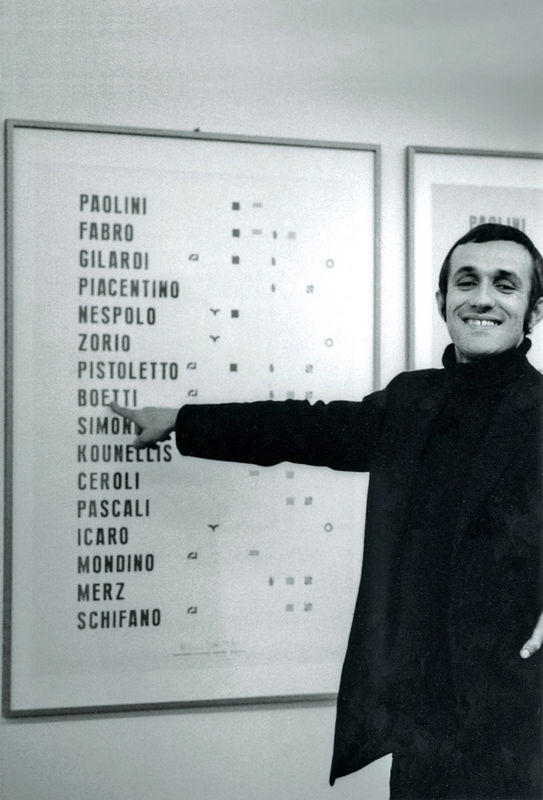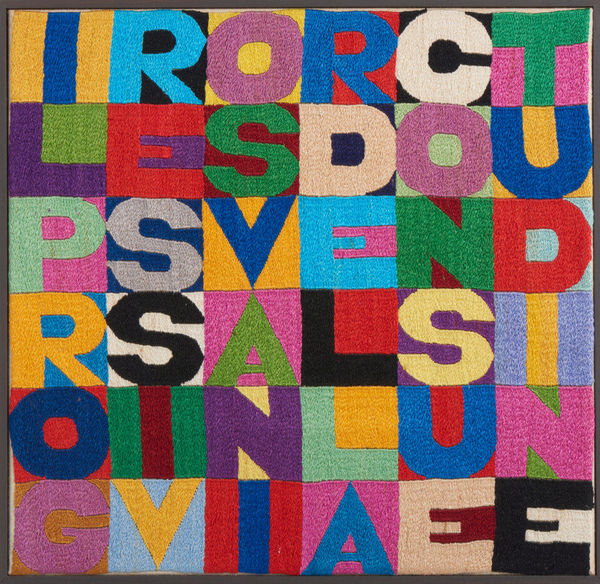Alighiero Boetti Italian, 1940-1994
Alighiero Boetti was born in Turin in 1940. A restless and curious mind, he was drawn early to philosophy, mathematics and language, all of which would later form the backbone of his artistic practice. After briefly studying business, Boetti abandoned formal education to pursue art, joining the Arte Povera movement in the mid-1960s. His early works made use of everyday materials—metal, cardboard, and industrial tools—to explore systems, duality and the tension between order and chaos.
In the 1970s, Boetti began travelling extensively, developing a deep connection with Afghanistan. In Kabul, he collaborated with local embroiderers to create his iconic Mappa series: world maps stitched in vibrant thread, each nation’s flag filling its borders. These works embodied his fascination with authorship, collaboration and the shifting nature of global politics. He later adopted the doubled name “Alighiero e Boetti,” reflecting his belief in the coexistence of multiple selves within one individual.
Over three decades, Boetti’s practice encompassed drawing, embroidery, mail art and conceptual systems, united by his preoccupation with time, chance, language and symmetry. His works—whether intricate coded grids or embroidered proverbs—combine intellect with playfulness, order with poetic disorder.
He represented Italy at the Venice Biennale in 1990, and his influence on contemporary conceptual art endures worldwide. Alighiero Boetti died in Rome in 1994.

